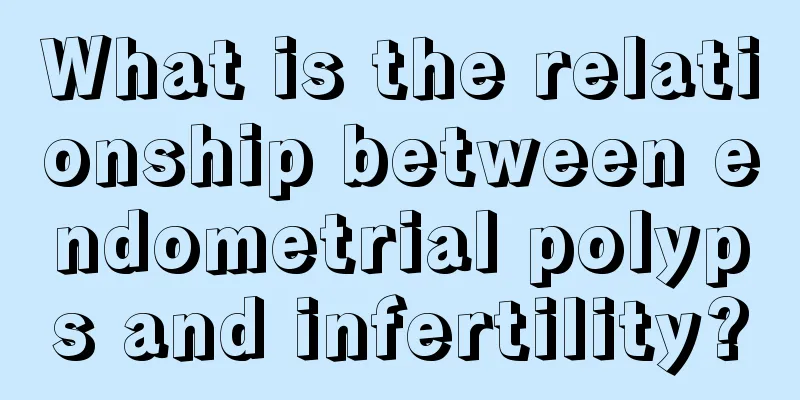What is the relationship between endometrial polyps and infertility?

|
Endometrial polyps are polyp-like masses that occur in the endometrium of the female uterine cavity. Sometimes these polyps can develop into submucosal fibroids, or the polyps can continue to expand and eventually become malignant lesions. There are many reasons that can cause endometrial polyps. Too high estrogen levels in the female body, abnormal endocrine function, or severe inflammation of the endometrium can all lead to endometrial polyps. Endometrial polyps can cause infertility in women. The harm of endometrial polyps is that they not only hinder the combination of sperm and egg, but may also interfere with the implantation and development of the fertilized egg. If endometrial polyps are accompanied by infection, the environment within the uterine cavity will change, which is not conducive to sperm survival and fertilized egg implantation. If pregnancy occurs, miscarriage is likely to occur in the early stages due to poor blood supply to the placenta, and in the late stages due to space-occupying lesions. Of course, the harm of endometrial polyps is not limited to this. Patients with endometrial polyps may experience the following symptoms: menstrual disorders, increased menstrual flow, prolonged menstrual period, variable bleeding, and spotting. Large endometrial polyps or polyps that protrude into the cervical canal are prone to infection and necrosis, causing irregular vaginal bleeding and foul-smelling bloody discharge. Women with a single, small endometrial polyp often have no symptoms. Due to the lack of typical symptoms, endometrial polyps are often difficult to detect clinically. Although the polyp was removed during surgery, the chronic inflammation of the uterus was not eliminated and the pathogenic bacteria still lurked in the cervical tissue, which means that the cause of the disease still exists. Therefore, after removing uterine polyps, chronic inflammation of the uterus should also be treated to prevent recurrence of polyps. Generally speaking, after suffering from endometrial polyps, endometrial polyp removal surgery is required. The diseased polyp tissue removed through surgery needs to be sent for examination, mainly to rule out the possibility of malignant transformation. Currently, endometrial polyps can be treated with hysteroscopy combined with laser surgical resection, and this treatment method has achieved very good results. |
<<: What are the treatments for endometrial polyps?
>>: What to do if you have a urinary tract infection during pregnancy
Recommend
One year after giving birth, I feel chest tightness and shortness of breath when I feel tired. What should I eat?
Giving birth takes a huge toll on women’s bodies....
A woman's lower abdomen and anus are painful
In gynecological clinical medicine, it is very co...
What is the fetal heart rate when pregnant with a boy?
Pregnancy is the happiest stage for women, and be...
What to do if your period is delayed and you have frequent urination
Delayed menstruation is a common phenomenon for w...
Why don't the cold-mixed lotus root slices turn black? Can we still eat the cold-mixed lotus root slices if they turn black?
We all know that lotus root is a common food, and...
What is the profession of a KTV princess? Can a KTV princess do it directly?
What exactly does a KTV princess do? There are pr...
A woman dreams of being at the seaside
Dreaming about being at the seaside usually indic...
Canalys: Global smartphone shipments reached 326 million units in Q3 2021, up 3% from the previous quarter
The latest data from Canalys shows that in the th...
Pregnancy abdominal pain
When you first become pregnant, you may experienc...
What causes white lips in women
Red lips and white teeth can reflect a woman'...
What are the common gynecological diseases?
We all know that women's body structure is pa...
What is the correct way to protect the fetus in late pregnancy?
When our female friends are in the late stage of ...
Normal values of six reproductive hormones
When a woman finds abnormalities in her menstruat...









